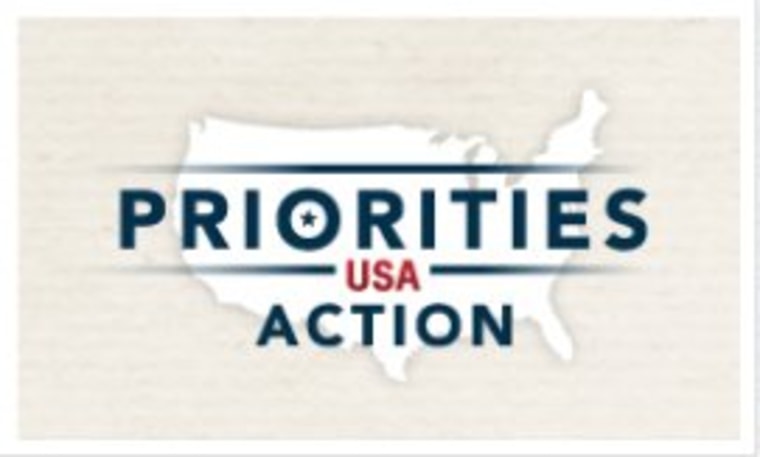For months, Republican super PACs have been raising vast sums from wealthy donors, heavily influencing the race for the GOP presidential nomination, and setting the stage for a breathtakingly expensive general election. The political world, however, hasn't heard much from Democratic super PACs, which have raised far less money.
That will apparently soon change.
President Obama is signaling to wealthy Democratic donors that he wants them to start contributing to an outside group supporting his re-election, reversing a long-held position as he confronts a deep financial disadvantage on a vital front in the campaign.Aides said the president had signed off on a plan to dispatch cabinet officials, senior advisers at the White House and top campaign staff members to deliver speeches on behalf of Mr. Obama at fund-raising events for Priorities USA Action, the leading Democratic "super PAC," whose fund-raising has been dwarfed by Republican groups. The new policy was presented to the campaign's National Finance Committee in a call Monday evening and announced in an e-mail to supporters."We're not going to fight this fight with one hand tied behind our back," Jim Messina, the manager of Mr. Obama's re-election campaign, said in an interview. "With so much at stake, we can't allow for two sets of rules. Democrats can't be unilaterally disarmed."
The general spin on this story so far has been that Obama's position has shifted -- he opposed the court rulings that cleared the way for these super PACs; he'd prefer that the outside groups not exist, and yet he's now urging financial backers to invest in an allied super PAC anyway.
But there's a reasonable case to be made that the president and his team are simply adapting to circumstances beyond their control. The far-right and well-financed Republican super PACs are going to exist and will spend hundreds of millions of dollars in 2012, whether Obama likes it or not.
The question, then, is whether the president and his allies are prepared to fight fire with fire. As of today, the answer appears to be "yes."
Indeed, Jim Messina argued overnight that the Obama campaign just doesn't have a choice.
The President opposed the Citizens United decision. He understood that with the dramatic growth in opportunities to raise and spend unlimited special-interest money, we would see new strategies to hide it from public view. He continues to support a law to force full disclosure of all funding intended to influence our elections, a reform that was blocked in 2010 by a unanimous Republican filibuster in the U.S. Senate. And the President favors action -- by constitutional amendment, if necessary -- to place reasonable limits on all such spending.But this cycle, our campaign has to face the reality of the law as it currently stands.
He added that Republican super PACS, in aggregate, are "expected to spend half a billion dollars, above and beyond what the Republican nominee and party are expected to commit to try to defeat the President." That may sound like hyperbole, but it's a reasonable estimate. The Koch brothers alone are prepared to spend $100 million later this year to defeat Obama.
Under these circumstances, the Democrats' move is easy to understand: they didn't want the post-Citizens United changes to the system, but they're stuck with them nevertheless. In this case, Dems simply intend to play by the rules -- rules they don't like, rules they wish were different, rules they'd gladly change, but the rules nevertheless.
Democrats had a choice: stick to principle, refuse to play by the new rules, and make defeat far more likely, or level the playing field. I don't imagine the debate lasted very long -- national campaigns in which Republicans, the Koch brothers, and Karl Rove are held to one standard, while Democrats voluntarily abide by a more difficult standard would appear to be a recipe for failure.
The national discourse doesn't benefit from these new rules, but the discourse also suffers when only one side follows the rules to get its message out to voters.
As Paul Begala explained in April, "We strongly support reform. We support new laws to require transparency of all donations. We support repealing the wrongheaded Citizens United ruling. But, to paraphrase Donald Rumsfeld, you go to war with the laws you have, not the laws you wish you had. Mr. Rove, the billionaire Koch brothers, the Chamber of Commerce, the NRA, the American Action Network, FreedomWorks, Americans for Prosperity, the Club for Growth, and other right-wing groups are projected to raise hundreds of millions of dollars to advance an extreme agenda which would hammer the middle class. We will not let their attacks go unanswered."
The only surprise here is that anyone would be surprised by the decision.
